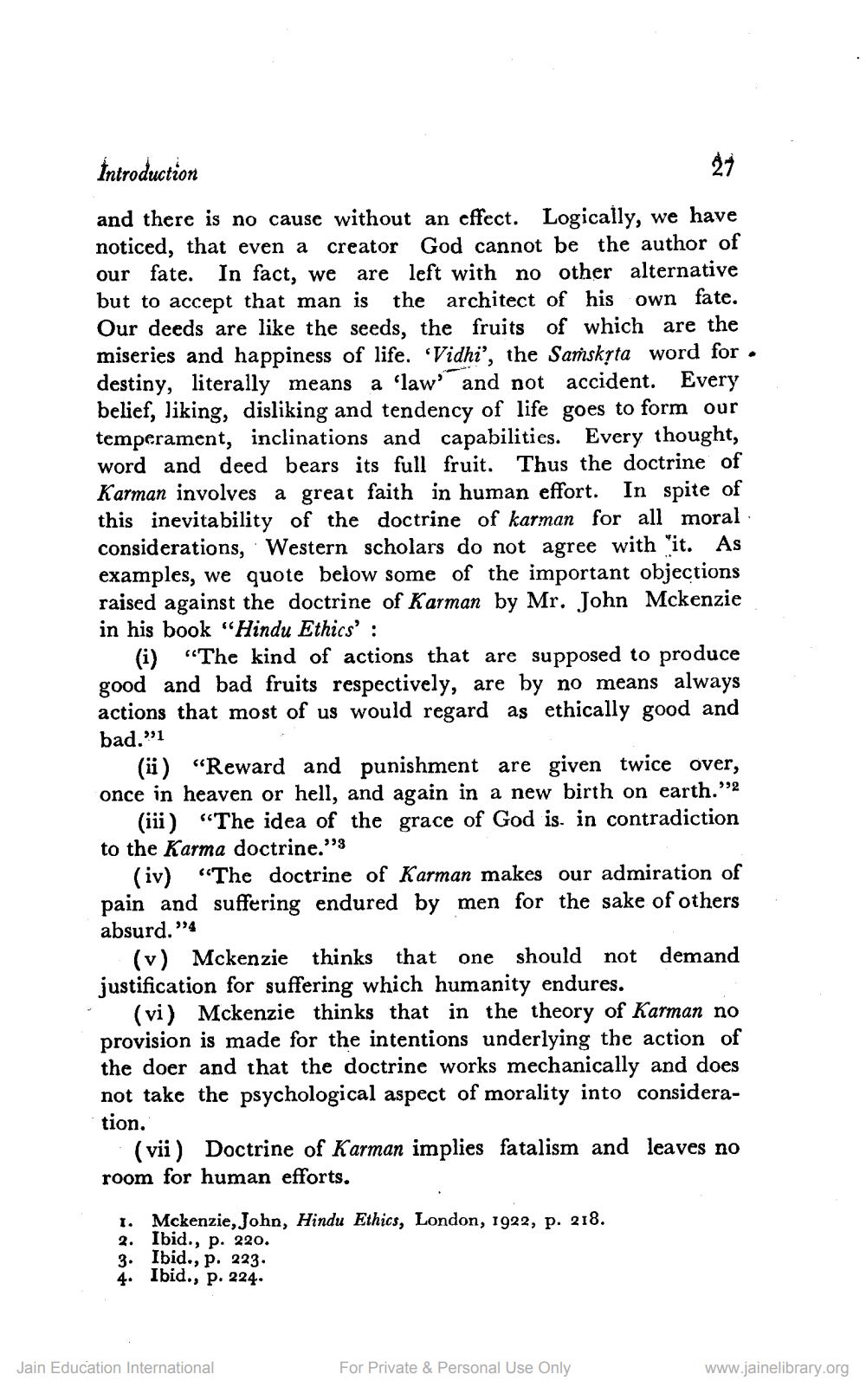________________
Introduction and there is no cause without an effect. Logically, we have noticed, that even a creator God cannot be the author of our fate. In fact, we are left with no other alternative but to accept that man is the architect of his own fate. Our deeds are like the seeds, the fruits of which are the miseries and happiness of life. "Vidhi, the Saṁskyta word for . destiny, literally means a 'law and not accident. Every belief, liking, disliking and tendency of life goes to form our temperament, inclinations and capabilities. Every thought, word and deed bears its full fruit. Thus the doctrine of Karman involves a great faith in human effort. In spite of this inevitability of the doctrine of karman for all moral considerations, Western scholars do not agree with it. As examples, we quote below some of the important objections raised against the doctrine of Karman by Mr. John Mckenzie in his book “Hindu Ethics' :
(i) “The kind of actions that are supposed to produce good and bad fruits respectively, are by no means always actions that most of us would regard as ethically good and bad.”
(ü) "Reward and punishment are given twice over, once in heaven or hell, and again in a new birth on earth.”2
(iii) “The idea of the grace of God is. in contradiction to the Karma doctrine."
(iv) “The doctrine of Karman makes our admiration of pain and suffering endured by men for the sake of others absurd. "4
(v) Mckenzie thinks that one should not demand justification for suffering which humanity endures.
(vi) Mckenzie thinks that in the theory of Karman no provision is made for the intentions underlying the action of the doer and that the doctrine works mechanically and does not take the psychological aspect of morality into consideration.
(vii) Doctrine of Karman implies fatalism and leaves no room for human efforts.
Mckenzie, John, Hindu Ethics, London, 1922, p. 218. 2. Ibid., p. 220. 3. Ibid., p. 223. 4. Ibid., p. 224.
Jain Education International
For Private & Personal Use Only
www.jainelibrary.org




